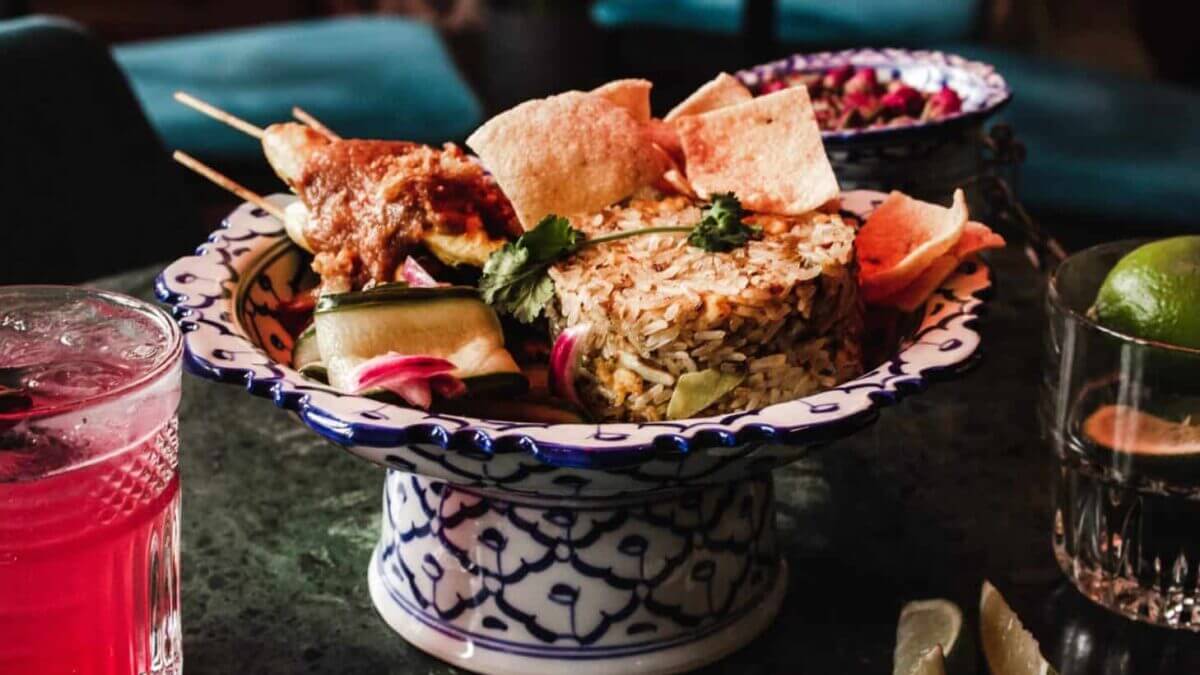First of all, we need to understand what the “Halal” concept actually means.
The Quran and Sunnah says that Halal is defined as lawful or permissible to use or to engage in.
In other words, it is any action or concept that is allowed in the Muslim faith and encompasses more than just-food.
According to International Journal of Academic Research in Business and Social Sciences in 2017: “Studies related to halal authentication technology are still at minimum levels while the questions that have arisen at present are matters of urgency that demand attention.”
When it comes to food, halal meat must not be part of the porcine origin or contain blood, as well as meat from birds of prey and reptiles.
Surprisingly, although it is a Muslim concept and way of life, the eight biggest suppliers of global halal meat are non-Muslim majority countries.
An Al-Jazeera report in 2017 says that Brazil, Australia, and India are the leading halal meat producers in the world.
Fruits, nuts, vegetables, and grains are also considered halal, so long as they are not prepared with any form of alcohol, animal shortening, bacon, and other haram ingredients.
Locally, the Malaysia Halal certification is based on the Malaysian standard of MS 1500:2009 which is the General Guidelines covered the Halal Food Production, Preparation, Handling, and Storage.
Whereas in Singapore, theMUIS Halal Certification Standard is regarding the General Guidelines for the Handling and Processing of Halal Food.
Now, back to how livestock becomes halal.

The very first step before the animal is even brought in for slaughter is to ensure the animal has been treated humanely.
It must never have been mistreated or caused any pain.
Not only that, but the animals must also be given enough space to roam, clean water, food and fresh air throughout its life.
When preparing an animal for slaughter, the first thing to do is face Mecca and call on Allah.
This is done by the slaughterman who would recite the words “Bismillahi-Allahu Akbar” (In the name of Allah the greatest).
Why call on Allah? Well, Islamic teachings say that life is sacred and one must kill only with God’s permission, to meet one’s lawful need for food.
“Therefore, eat of that upon which Allah´s name has been mentioned if you are believers in His communications,” (Al-Qur’an, 6: 118).
The animal must have been alive and healthy when it was slaughtered, and the kill must come from a cut to the trachea, esophagus, main arteries, and veins of the neck region using a surgically sharp instrument.
The blood is then allowed to drain from the neck.
By right, only one animal can be slaughtered at a time with the other animals “protected” from seeing the killing.
The razor-sharp knife must also be completely clean of blood before it can be used to slaughter the next animal.
In all instances, unnecessary suffering for the animals must be avoided.
The slaughtering must not result in a poor cut, bad bleeding and slow loss of consciousness and pain to the animal.
Pre-stunned slaughter can be done but the animal must not be killed by the actual electric shock.
According to the British Halal Food Authority, low-voltage electrified water baths to stun poultry and electric tong stunning for sheep and goats is allowed to be used before the animal’s throat is cut.
Interestingly, these rules for killing do not apply to fish or other seafood sources, which are all regarded as halal.
Once the meat has been cut up and prepared for storage, it should be stored in separate cold stores other than those in which pork or other non-halal meat is stored.
Many countries have jumped on board the halal train and it would be good for the local meat industry to capitalise on the halal market and adopt the halal method in preparing their products.
If you are manufacturing or selling halal products and keen to join MIFB 2020, reserve your booth now before it has run out of space.



